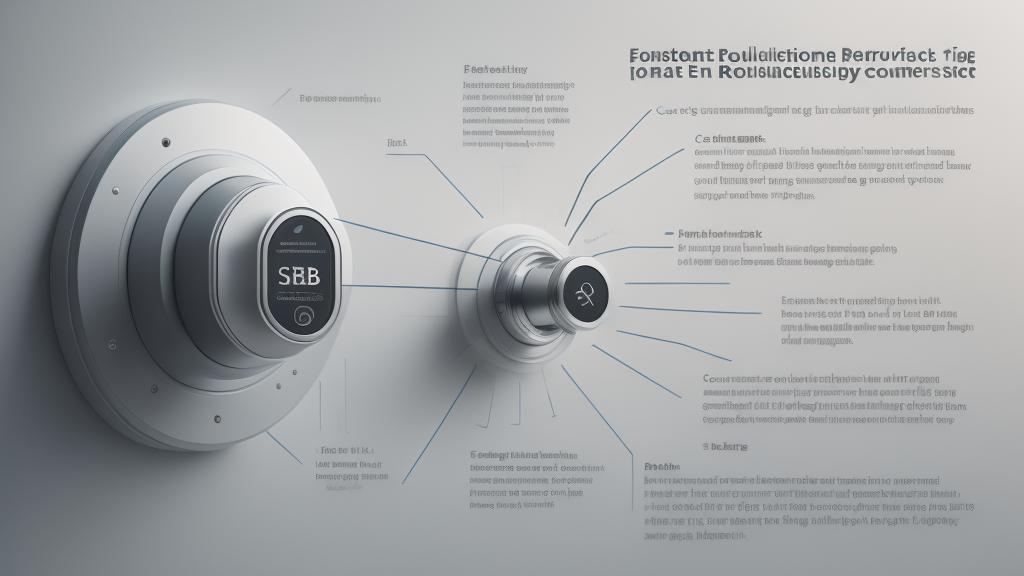In recent years, the evolution of home security technology has been nothing short of groundbreaking, with smart locks taking center stage as a transformative tool for ensuring safety and convenience. It seems like we're swiftly approaching an era where traditional keys might become relics of the past. But what makes these modern marvels so compelling, and are they truly safe? Let's dig deeper into the inspiration behind this pivot, the technology driving it, and the advantages and potential pitfalls of embracing smart locks.
### A response to evolving threats
The home security industry is anything but static. As burglars and home invaders become more sophisticated, so too must the defenses against them. While deadbolts and elaborate locking mechanisms served homeowners well for decades, they have also been extensively studied and, tragically, defeated by increasingly clever adversaries. Smart locks emerged not only as a modern alternative but as an essential evolution in this never-ending arms race between security providers and those who seek to circumvent them.
### The technology at work
On the surface, a smart lock can appear deceptively simple. Typically, it replaces or augments a traditional deadbolt, with its intelligence stemming from its connectivity and built-in processors. These locks can be operated via smartphones, voice-assisted devices, or even physical keypads, but they're all united by their ability to be managed remotely. Whether you're on a beach halfway across the world or just too cozy on the couch to get up, you can control your door's security with the push of a button.
### Strengthening your fortress from afar
One of the most appealing aspects of smart locks is their potential for integration into wider smart home ecosystems. With many options available, homeowners can sync their locks with surveillance cameras, alarm systems, and virtual assistants. Imagine approaching your home and your front door recognizing you, disabling the alarm, and unlocking the door, all while the lights turn on and welcome you inside. It's not science fiction anymore but a present-day reality, adding layers of both convenience and security.
### Facing the digital age's dark side
Every rose has its thorn, and smart locks, unfortunately, are no exception. While they offer enhanced security and features, they also bring with them new vulnerabilities. Cybersecurity is a major concern, with hackers finding ever more innovative ways to bypass electronic defenses. From exploiting weaknesses in encryption protocols to physical hacking through vulnerabilities in the lock's design itself, the threats are diverse and numerous.
### Mind the elements
Beyond digital threats, smart locks, like all electronic devices, also face challenges from the natural world. Extreme weather conditions can sometimes interfere with electronic functions, potentially leaving homeowners locked out in the cold—or heat. However, manufacturers are increasingly designing these locks to handle a range of environmental conditions.
### The verdict on security
So, are smart locks a worthy investment? Ultimately, it comes down to individual needs and circumstances. For tech-savvy homeowners and those deeply invested in smart home technology, they offer unparalleled convenience. Couples or families who often misplace keys, or landlords needing to streamline access management, will find smart locks invaluable. However, for the average user, it's crucial to weigh the benefits against the potential risks and costs, ensuring that digital locks are paired with robust cybersecurity measures.
### The not-so-final frontier
The home security market continues to develop at a breakneck pace, and smart locks are just a glimpse of what the future holds. With advancements in biometric technology, AI, and cloud connectivity, future locks might integrate even more sophisticated security measures. As technology evolves, so will the tools we use to protect ourselves, underscoring the need for both consumer vigilance and continued innovation in this ever-pertinent field.
In conclusion, smart locks are more than just a high-tech novelty. They represent a significant step forward in the ongoing quest to secure our homes in an increasingly connected world. With proper precautions and an understanding of their limitations, they can indeed make for a safer, and smarter, living environment.
The rise of smart locks: Are your keys becoming obsolete?

